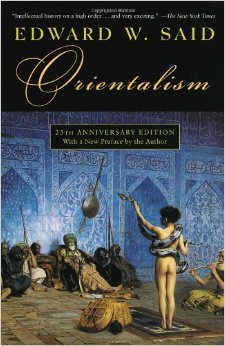Are the Humanities Political?
It is very easy to argue that knowledge about Shakespeare or Wordsworth is not political whereas knowledge about contemporary China or the Soviet Union is. My own formal and professional designation is that of "humanist," a title which indicates the humanities as my field and therefore the unlikely eventuality that there might be anything political about what I do in that field. Of course, all these labels and terms are quite unnuanced as I use them here, but the general truth of what I am pointing to is, I think, widely held. One reason for saying that a humanist who writes about Wordsworth, or an editor whose specialty is Keats, is not involved in anything political is that what he does seems to have no direct political effect upon reality in the everyday sense. A scholar whose field is Soviet economics works in a highly charged area where there is much government interest, and what he might produce in the way of studies or proposals will be taken up by policymakers, government officials, institutional economists, intelligence experts. The distinction between "humanists" and persons whose work has policy implications, or political significance, can be broadened further by saying that the former's ideological color is a matter of incidental importance to politics (although possibly of great moment to his colleagues in the field, who may object to his Stalinism or fascism or too easy liberalism), whereas the ideology of the latter is woven directly into his material—indeed, economics, politics, and sociology in the modern academy are ideological sciences—and therefore taken for granted as being "political."
Notes:
Folksonomies: politics humanism humanities
Taxonomies:
/law, govt and politics/politics/political parties (0.532572)
/religion and spirituality/atheism and agnosticism (0.503822)
/law, govt and politics/government (0.412636)
Keywords:
direct political effect (0.906981 (negative:-0.409354)), unlikely eventuality (0.738501 (negative:-0.367246)), ideological sciences—and (0.700699 (negative:-0.399851)), Soviet Union (0.693461 (neutral:0.000000)), general truth (0.662523 (neutral:0.000000)), incidental importance (0.646896 (negative:-0.441068)), Soviet economics (0.642395 (positive:0.523217)), everyday sense (0.636725 (negative:-0.409354)), institutional economists (0.634075 (negative:-0.202854)), great moment (0.625409 (positive:0.431149)), policy implications (0.623782 (negative:-0.211682)), modern academy (0.618121 (neutral:0.000000)), political significance (0.614511 (neutral:0.000000)), government officials (0.610837 (negative:-0.281427)), field (0.539684 (positive:0.155064)), Wordsworth (0.518427 (positive:0.469566)), humanities (0.477015 (negative:-0.367246)), knowledge (0.442714 (positive:0.720544)), politics (0.411685 (negative:-0.441068)), Stalinism (0.392295 (neutral:0.000000)), humanist (0.390355 (positive:0.410259)), designation (0.387948 (neutral:0.000000)), policymakers (0.380819 (neutral:0.000000)), Keats (0.377463 (neutral:0.000000)), ideology (0.377288 (neutral:0.000000)), humanists (0.376555 (neutral:0.000000)), fascism (0.376366 (neutral:0.000000)), distinction (0.372275 (positive:0.358389)), liberalism (0.372082 (neutral:0.000000)), reason (0.370287 (positive:0.410259))
Entities:
Wordsworth:Person (0.916887 (positive:0.469566)), Soviet Union:Organization (0.719617 (neutral:0.000000)), Keats:Person (0.680647 (negative:-0.475348)), China:Country (0.549239 (neutral:0.000000)), editor:JobTitle (0.467735 (neutral:0.000000))
Concepts:
Communism (0.969518): dbpedia | freebase | opencyc
Karl Marx (0.964601): dbpedia | freebase | opencyc | yago
Political philosophy (0.920667): dbpedia | freebase | opencyc
Social sciences (0.810787): dbpedia | opencyc
Totalitarianism (0.798396): dbpedia | freebase
Sociology (0.792544): dbpedia | freebase | opencyc
Law (0.786492): dbpedia | freebase | opencyc
Logic (0.781190): dbpedia | freebase | opencyc





